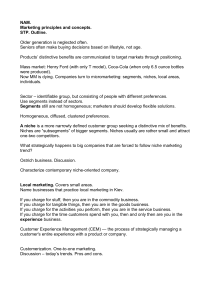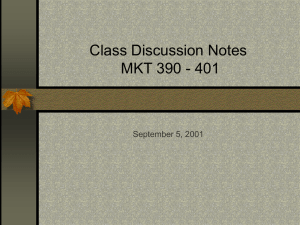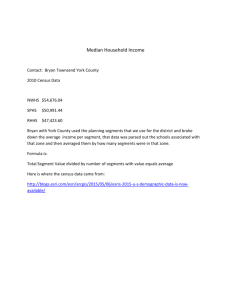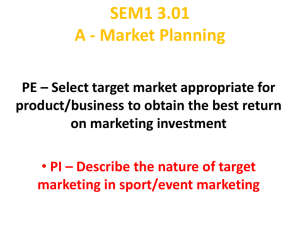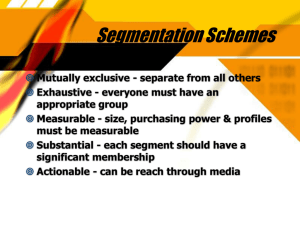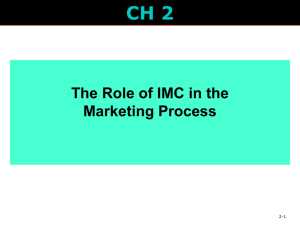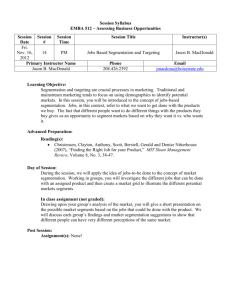ch04
advertisement
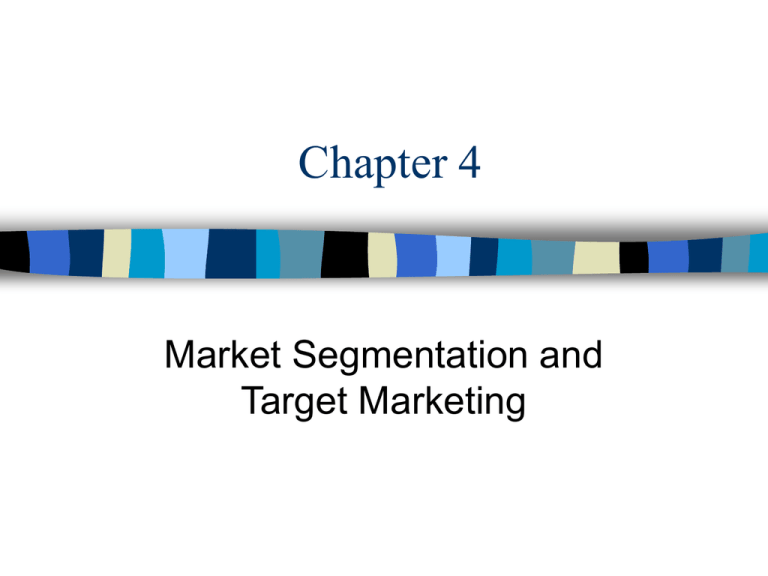
Chapter 4 Market Segmentation and Target Marketing Criteria for Segmentation Identifiable Measurable Adequate size Accessible Types of Segments Geographic – Political – Census U.S. Census Regions New England Middle Atlantic South Atlantic East North Central East South Central West North Central West South Central Mountain Pacific Types of Segments Geographic – Political – Census – Postal Zones – Media Coverage • Area of dominant influence (ADI) Types of Segments Demographic – Age – Gender – Family size – Income – Ethnic background Psychographic – AIO Psychographics Activities Interests Opinions Work Hobbies Social events Vacation Entertainment Clubs Community Shopping Sports Family Home Job Community Recreation Fashion Food Media Achievements Themselves Social issues Politics Business Economics Education Products Future Culture VAL 2 (Value and Lifestyle) Self-Orientation High PrincipleOriented StatusOriented ActionOriented Actualizers Resources Fulfillers Believers Achievers Experiencers Strivers Makers Strugglers Low Types of Segments Geographic Demographic Psychographic Benefit Behavioral Behavior Segmentation User status Usage frequency Usage occasion – When – How – Why Midmorning Lunch Midafternoon Dinner Late evening 1a 11 5 11 9 11 Carry-out 2 12 6 12 Delivery Dine-in 3 7 Carry-out 4 8 Delivery a. 12 Weekday rank order of importance 10 Weekend Time of week Breakfast Dine-in Snack/meal Occasion Where food is consumed Segmentation Matrix Geodemographic Segmentation ACORN ClusterPLUS 2000 MicroVision 50 PRIZM Census Demographics and Demographic Updates Social rank Household composition Housing Ethnicity Urbanization Mobility Neighborhood Geography Census tracts Block groups Zip codes (9-digit) Carrier routes DATA ANALYSIS PRIZM Lifestyle Clusters Consumer Behavior Data Automobiles owned Magazine readership Direct marketing data Real estate Credit Expenditures Buying Center Member Roles Users Influencers Buyers Deciders Gatekeepers Lodging Organizational Customer Segments Individual business travelers Group markets – – – – Corporate meetings Business and professional associations Group tours Incentive travel Other organizational markets – Airline crews – Government – SMERF Contract Foodservice Organizational Customers Business and industry Colleges and universities Schools Health care facilities Other institutional segments


